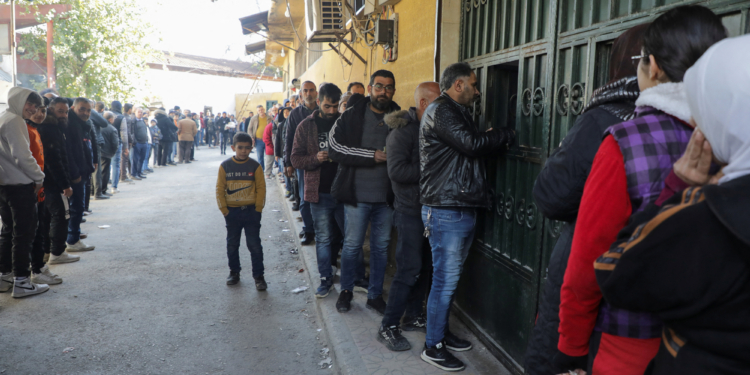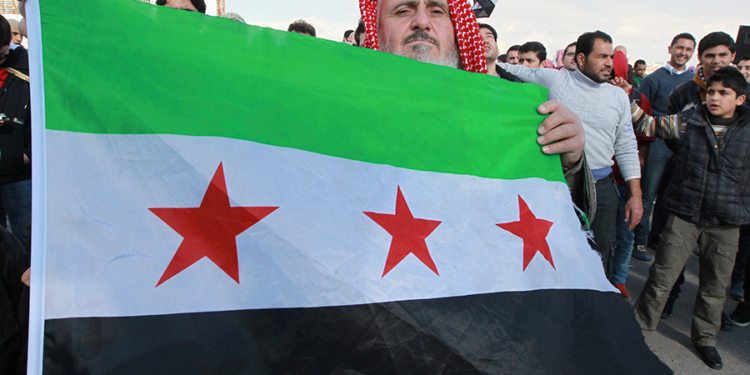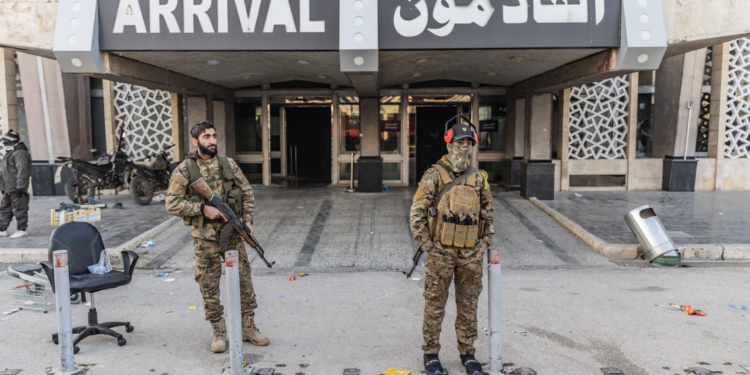Of late, a distinct note of self-assertiveness has found its way into the pronouncements of many African countries. While the underlying mood most certainly dates back to the period before the Russian invasion of Ukraine in February 2022, that it has been boosted by the global diplomatic fallout of the conflict, now approaching a third deadly year, goes without saying. Hitherto subtly indignant at their perceived disregard by the major powers, these countries welcomed the breach that opened up in the wake of Western attempts to forge a common front against Russia as an opportunity to ventilate long-simmering grievances.
For such countries, the language of “sovereignty” has come in handy. Used in a manner suggestive of pride tinted with defiance, perhaps no word has featured more frequently in the speeches and public addresses of several African countries over the past few years. For instance, it (i.e., “sovereignty”) was the keynote when, back in July 2024, the renegade Alliance of Sahel States (AES), comprising Burkina Faso, Mali, and Niger, held its inaugural summit in Niamey, the Nigerien capital. The growing popularity of the idea and its increased use to mobilize “anti-Western” and “anti-imperialist” forces across the continent was also evident in last November’s “Conference in Solidarity with the Peoples of the Sahel,” a gathering of “activists from across Africa and the world” sponsored by the Abdourahamane Tchiane-led military junta.
More on:
Judging by signals across the Sahel, the renewed clamor for “sovereignty” seems all-encompassing. For instance, Mali’s decision last year to drop French, the so-called “language of the colonizer,” as its official language (a status it had enjoyed since the country’s independence in September 1960) and replace it with “thirteen national languages” seems to have been motivated by this newfangled desire for “autonomy,” although this time in the realm of language.
Africa in Transition
Michelle Gavin, Ebenezer Obadare, and other experts track political and security developments across sub-Saharan Africa. Most weekdays.
Indeed, if Burkina Faso’s junta leader Ibrahim Traore has his way, the region’s CFA franc currency, which he sees as the prime illustration of “monetary imperialism,” will be on the next consignment to the anti-colonial landfill. As he told an interviewer in February last year, “It’s not just the currency. Anything that maintains us in slavery, we’ll break those bonds.”
By far the greatest indication of these countries’ apparent determination to “break their bonds” and regain their “sovereignty” is their stance on foreign military presence and bases. Last week, Ivorian President Alassane Ouattara confirmed the imminent departure of some six hundred French military personnel from the country. In November, his Senegalese counterpart, Bassirou Diomaye Faye, had indicated that French troops numbering three hundred fifty will withdraw from the country, while the country (i.e., France) will be mandated to shut down its military bases across the country by the end of 2025, a decision later confirmed by Prime Minister Ousmane Sonko.
Senegal’s and Côte d’Ivoire’s actions follow previous well-documented moves by the military-led governments in Niger, Mali and Burkina Faso, all of which had ripped defense agreements with France (the United States in the case of Niger) and demanded the closure of military bases across their respective territories. Announcing a similar termination of its “completely obsolete” decades-long military treaty with France last month, Chad’s Foreign Minister Abderaman Koulamallah, instructively cited his country’s need to “assert its full sovereignty.”
One need not be an expert on Francophone West African history to understand the sources of these countries’ angst against France, nor does one have to fully sympathize with them to see that the one-time colonial overlord has its work cut out for it in the region. The fact that, in recent times, Paris has “increased aid to the continent, begun the return of cultural artefacts stolen during the colonial wars, and reached out beyond the usual inter-government ties to engage younger generations and civil society” indicates its sudden realization that, having found itself on the back foot in the region, it must rethink its strategy accordingly.
More on:
Even so, the sovereignty rhetoric raises more questions than answers. In the first place, the underlying implication that these countries were never “sovereign,” meaning that any awareness on their part of their agency is only due somehow to a recent epiphany, must be taken with a pinch of salt. At the very least, it seems to contradict the historical data on the dynamics of the interaction between France and its former (African) colonies, whereby a succession of (military and civilian) leaders sometimes had to act under direct pressure from Paris; and yet, at other times, were all too happy to manipulate the latter to take sides in often-bitter contestations with domestic political rivals. In other words, African leaders gave as good as they got, and the suggestion that France more or less had its way over their helpless protestations does not seem to stand up to scrutiny. One finds it difficult to believe that France would have maintained military bases in various African countries for so long if these countries simultaneously had no (defense and political) use for them. Harder still to imagine that, at any point over the same period, France could have stood its ground had any of the countries with which it had entered into military agreements insisted that it evacuate.
Furthermore, it is odd indeed that the same countries now vigorously asserting their “sovereignty” do not seem to mind signing with Russia and China agreements that are hardly different from the “colonial” treaties that they now accuse France of foisting upon them. If the problem is being under the suzerainty of a foreign power and the solution is breaking free with the aim of attaining “full decolonization,” why trade French “imperialism” for its Russian or Chinese equivalent? Likewise, how can countries which continue to be dependent on foreign development aid (for example, nearly half of the Nigerien government’s budget is said to derive from various foreign donors) posture about sovereignty? After all, what is sovereignty if you cannot afford to pay your own bills, and how can you insist on holding your head high while holding your hand out?
Finally, it is not insignificant that some of the most ardent avowers of “full sovereignty” for Africa are certified despots who are increasingly denying common freedoms, particularly of speech and association, to their citizens, detaining without trial opposition journalists and activists who dare to speak out about rising insecurity and inflation, or dare challenge the various juntas for a credible program of return to civilian rule. Thus, there are strong grounds to suspect that the clamor for “sovereignty” that we are seeing is less about a true quest for African self-determination and more about creating political distraction for purposes of regime consolidation.
Now, there is a serious debate to be had about sovereignty, particularly about how to challenge prevailing narratives on self-determination in a Eurocentric world order, a subject on which, incidentally, many African scholars, notably Cornell political scientist and international relations theorist Siba Grovogui, have written often, and often profoundly.
Sadly, the current “liberationist” turn, yoked with an untroubled and, frankly, unimaginative “Pan-Africanism,” has nothing of the nuance and deliberateness of this scholarship. Instead, it seems, at least for the most part, like a desperate gambit to hoard power while distracting attention from core issues of democratic reform.
Nathan Schoonover contributed to the research for this article.
The Ruse of Sovereignty

Vincent Bado/REUTERS
Getting rid of foreign military presence may be the least of African countries’ problems.
Post
by
Ebenezer Obadare, Author
January 6, 2025 11:10 am (EST)

Vincent Bado/REUTERS
- Post
- Blog posts represent the views of CFR fellows and staff and not those of CFR, which takes no institutional positions.
Of late, a distinct note of self-assertiveness has found its way into the pronouncements of many African countries. While the underlying mood most certainly dates back to the period before the Russian invasion of Ukraine in February 2022, that it has been boosted by the global diplomatic fallout of the conflict, now approaching a third deadly year, goes without saying. Hitherto subtly indignant at their perceived disregard by the major powers, these countries welcomed the breach that opened up in the wake of Western attempts to forge a common front against Russia as an opportunity to ventilate long-simmering grievances.
For such countries, the language of “sovereignty” has come in handy. Used in a manner suggestive of pride tinted with defiance, perhaps no word has featured more frequently in the speeches and public addresses of several African countries over the past few years. For instance, it (i.e., “sovereignty”) was the keynote when, back in July 2024, the renegade Alliance of Sahel States (AES), comprising Burkina Faso, Mali, and Niger, held its inaugural summit in Niamey, the Nigerien capital. The growing popularity of the idea and its increased use to mobilize “anti-Western” and “anti-imperialist” forces across the continent was also evident in last November’s “Conference in Solidarity with the Peoples of the Sahel,” a gathering of “activists from across Africa and the world” sponsored by the Abdourahamane Tchiane-led military junta.
More on:
Judging by signals across the Sahel, the renewed clamor for “sovereignty” seems all-encompassing. For instance, Mali’s decision last year to drop French, the so-called “language of the colonizer,” as its official language (a status it had enjoyed since the country’s independence in September 1960) and replace it with “thirteen national languages” seems to have been motivated by this newfangled desire for “autonomy,” although this time in the realm of language.
Africa in Transition
Michelle Gavin, Ebenezer Obadare, and other experts track political and security developments across sub-Saharan Africa. Most weekdays.
Indeed, if Burkina Faso’s junta leader Ibrahim Traore has his way, the region’s CFA franc currency, which he sees as the prime illustration of “monetary imperialism,” will be on the next consignment to the anti-colonial landfill. As he told an interviewer in February last year, “It’s not just the currency. Anything that maintains us in slavery, we’ll break those bonds.”
By far the greatest indication of these countries’ apparent determination to “break their bonds” and regain their “sovereignty” is their stance on foreign military presence and bases. Last week, Ivorian President Alassane Ouattara confirmed the imminent departure of some six hundred French military personnel from the country. In November, his Senegalese counterpart, Bassirou Diomaye Faye, had indicated that French troops numbering three hundred fifty will withdraw from the country, while the country (i.e., France) will be mandated to shut down its military bases across the country by the end of 2025, a decision later confirmed by Prime Minister Ousmane Sonko.
Senegal’s and Côte d’Ivoire’s actions follow previous well-documented moves by the military-led governments in Niger, Mali and Burkina Faso, all of which had ripped defense agreements with France (the United States in the case of Niger) and demanded the closure of military bases across their respective territories. Announcing a similar termination of its “completely obsolete” decades-long military treaty with France last month, Chad’s Foreign Minister Abderaman Koulamallah, instructively cited his country’s need to “assert its full sovereignty.”
One need not be an expert on Francophone West African history to understand the sources of these countries’ angst against France, nor does one have to fully sympathize with them to see that the one-time colonial overlord has its work cut out for it in the region. The fact that, in recent times, Paris has “increased aid to the continent, begun the return of cultural artefacts stolen during the colonial wars, and reached out beyond the usual inter-government ties to engage younger generations and civil society” indicates its sudden realization that, having found itself on the back foot in the region, it must rethink its strategy accordingly.
More on:
Even so, the sovereignty rhetoric raises more questions than answers. In the first place, the underlying implication that these countries were never “sovereign,” meaning that any awareness on their part of their agency is only due somehow to a recent epiphany, must be taken with a pinch of salt. At the very least, it seems to contradict the historical data on the dynamics of the interaction between France and its former (African) colonies, whereby a succession of (military and civilian) leaders sometimes had to act under direct pressure from Paris; and yet, at other times, were all too happy to manipulate the latter to take sides in often-bitter contestations with domestic political rivals. In other words, African leaders gave as good as they got, and the suggestion that France more or less had its way over their helpless protestations does not seem to stand up to scrutiny. One finds it difficult to believe that France would have maintained military bases in various African countries for so long if these countries simultaneously had no (defense and political) use for them. Harder still to imagine that, at any point over the same period, France could have stood its ground had any of the countries with which it had entered into military agreements insisted that it evacuate.
Furthermore, it is odd indeed that the same countries now vigorously asserting their “sovereignty” do not seem to mind signing with Russia and China agreements that are hardly different from the “colonial” treaties that they now accuse France of foisting upon them. If the problem is being under the suzerainty of a foreign power and the solution is breaking free with the aim of attaining “full decolonization,” why trade French “imperialism” for its Russian or Chinese equivalent? Likewise, how can countries which continue to be dependent on foreign development aid (for example, nearly half of the Nigerien government’s budget is said to derive from various foreign donors) posture about sovereignty? After all, what is sovereignty if you cannot afford to pay your own bills, and how can you insist on holding your head high while holding your hand out?
Finally, it is not insignificant that some of the most ardent avowers of “full sovereignty” for Africa are certified despots who are increasingly denying common freedoms, particularly of speech and association, to their citizens, detaining without trial opposition journalists and activists who dare to speak out about rising insecurity and inflation, or dare challenge the various juntas for a credible program of return to civilian rule. Thus, there are strong grounds to suspect that the clamor for “sovereignty” that we are seeing is less about a true quest for African self-determination and more about creating political distraction for purposes of regime consolidation.
Now, there is a serious debate to be had about sovereignty, particularly about how to challenge prevailing narratives on self-determination in a Eurocentric world order, a subject on which, incidentally, many African scholars, notably Cornell political scientist and international relations theorist Siba Grovogui, have written often, and often profoundly.
Sadly, the current “liberationist” turn, yoked with an untroubled and, frankly, unimaginative “Pan-Africanism,” has nothing of the nuance and deliberateness of this scholarship. Instead, it seems, at least for the most part, like a desperate gambit to hoard power while distracting attention from core issues of democratic reform.
Nathan Schoonover contributed to the research for this article.






































